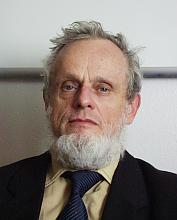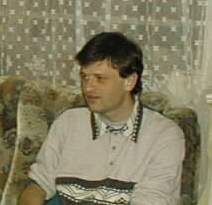

Academy of Sciences - Czech Republic
Fuzzy logic, originally motivated by certain engineering applications [Go68], has in the past decades evolved into a well-developed branch of many-valued logics [Go93, Ha98]. Metamathematical investigations of the wide variety of fuzzy logics have revealed deep connections with substructural logics (incl. general algebraic semantics of residuated lattices and the lack of structural rules for local fuzzy consequence relations). It turns out that fuzzy logics whose local consequence relation captures the transmission of partial truth (i.e., monoidal t-norm logic MTL [EG01] and their well-behaved extensions, expansions and fragments) can be characterized as intuitionistic contraction-free substructural logics with the property of prelinearity. A formal delimitation of the subject [BC06] has allowed applying general methods of substructural and many-valued logics [Ra74, Re00, DH01] to the whole class of prelinear (or fuzzy) weakly implicative logics [Ci06]. The general approach allows extending propositional fuzzy logics in a uniform way to their first-order [HC06] and higher-order [BC05] fuzzy logics. The tutorial will present the state of the art in the general meta-theory of fuzzy logics and their relationship to larger classes of substructural logics.
The phenomenon of vagueness and fuzziness: sorites, degrees of truth, fuzziness vs. probability, logic of vagueness vs. philosophy of vagueness.
· Traditionally motivated fuzzy logics: t-norms and t-norm based logics (BL, Lukasiewicz, Goedel-Dummett, product, MTL, etc.), standard [0,1] semantics, Hilbert-style axiomatization, general semantics of residuated lattices, derived systems of fuzzy logic (SBL, SMTL, IMTL, PiMTL, weakly cancellative logics, hoop logics, fleas, uninorm logic, LPi, logics with truth constants, etc.), metamathematical properties (completeness, local deduction theorem, subdirect decomposition, complexity, etc.).
· Transmission of partial truth: global fuzzy consequence relations, Rasiowa’s implicative and Cintula’s weakly implicative logics, the role of prelinearity, local fuzzy consequence relations, expansions by propositional connectives, special axioms, structural rules, characterizations of fuzzy logics among substructural logics, relationship to well-known substructural logics (linear, intuitionistic, BCK, etc.), universal methods for the class of fuzzy logics.
· First- and higher-order fuzzy logic: first-order lattice quantifiers, Tarski semantics, metamathematical properties (completeness, incompleteness, complexity, etc.), higher-order fuzzy logic, Henkin-style completeness, theories over fuzzy logics and their specific features, generalized quantifiers, higher-order substructural logics.
Bibliography:
[BC05] Behounek L., Cintula P.: Fuzzy class theory. Fuzzy Sets and Systems 154 (2005): 34-55.
[BC06]Behounek L., Cintula P.: Fuzzy logics as the logics of chains. Fuzzy Sets and Systems 157 (2006): 604-610.
[Ci06]Cintula P.: Weakly implicative (fuzzy) logics I: Basic properties. Archive for Mathematical Logic 45 (2006): 673-704.
[DH01]Dunn J.M., Hardegree G.M.: Algebraic Methods in Philosophical Logic. Oxford UP, Oxford 2001.
[EG01]Esteva F., Godo L.: Monoidal t-norm based logic: Towards a logic for left-continuous t-norms. Fuzzy Sets and Systems 124 (2001): 271-288.
[Go68]Goguen J.A.: The logic of inexact concepts. Synthese 19 (1968-9): 325-373.
[Go93]Gottwald S.: Treatise on Many-Valued Logic. Research Studies Press, Baldock 2001.
[Ha98]Hajek P.: Metamathematics of Fuzzy Logic. Kluwer, Dordrecht 1998.
[HC06]Hajek P., Cintula P.: On theories and models in fuzzy predicate logics. Journal of Symbolic Logic 71 (2006): 863-880.
[Re00]Restall G.: An Introduction to Substructural Logics. Routledge, New York 2000.
[Ra74]Rasiowa H.: An Algebraic Approach to Non-Classical Logics. North-Holland, Amsterdam 1974.